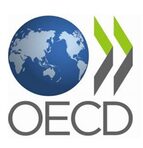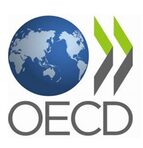|
On March 30, 2021, Greece and Hungary deposited their instrument of ratification for the Multilateral Convention to Implement Tax Treaty Related Measures to Prevent Base Erosion and Profit Shifting (MLI).
For Greece and Hungary, the MLI will enter into force on July 1, 2021. With 95 jurisdictions currently covered by the MLI, the ratifications by Greece and Hungary now bring to 65 the number of jurisdictions which have ratified, accepted, or approved it. On March 25, 2021, the OECD published the Arbitration Profiles of 30 jurisdictions applying Part VI on Arbitration of the MLI and an opinion of the Conference of the Parties to the MLI.
The profiles were published by the OECD in its capacity as Depositary of the Multilateral Convention to Implement Tax Treaty Related Measures to Prevent Base Erosion and Profit Shifting (MLI). Among other things, the MLI aims at strengthening provisions to resolve treaty disputes, including through mandatory binding arbitration, which has been taken up by 30 countries. See Profiles A subcommittee of the UN Committee of Experts on International Cooperation in Tax Matters will present a final proposal on digital economy taxation in April 2021.
A March 11 release states: “In its 21st session held in October 2020 the UN Tax Committee voted for including an Article in the UN Model Tax Convention attributing a treaty taxing right for source jurisdictions on payments for automated digital services.” The release continues: “Thereafter, the Subcommittee on Tax Issues related to the Digitalization of the Economy continued work on the draft of that article and its commentary including through two Subcommittee meetings, in December 2020 and February 2021. The work has advanced very well, and some pending key issues have been decided for Subcommittee purposes.” “It is expected that after some fine tuning of the language, on which the Subcommittee may have a one-day meeting soon, a final proposal will be presented for decision during the 22nd session of the Tax Committee to be held virtually - with meetings expected to be held from April 19-28, 2021,” the release concludes. See Release On March 18, 2021, the OECD revealed that the Mongolian Tax Administration issued its first transfer pricing tax assessment in late 2020 for approximately USD 228 million and a denial of USD 1.5 billion in carried forward losses, as a result of the mining tax audit capacity building initiatives.
According to the OECD, the assessment represents a significant milestone and step forward for the Mongolian Tax Administration in executing its strategy to combat tax base erosion and profit shifting in the mining sector. “The recent tax assessment builds upon focussed efforts by the Mongolian Tax Administration and the Ministry of Finance to align the country’s tax rules and practices with international best practices. Having joined the OECD’s BEPS Project and the Global Forum on Transparency and Exchange of Information for Tax Purposes, Mongolia is successfully implementing the BEPS measures by introducing a number of international taxation provisions,” the OECD said. See Release On March 16, 2021, Ireland’s Department of Finance launched a public consultation on the application of the Authorised OECD Approach (AOA) to the attribution of profits to branches of non-resident companies.
The document contains examples of what some of the legislation implementing the AOA may look like, along with consultation questions on a range of technical and policy issues. Comments must be received by April 16. See Public Consultation Document On March 15, 2021, the Council of the OECD composed of Ambassadors representing the 37 Member Countries, took the formal decision to appoint Mathias Cormann of Australia to become the sixth Secretary-General of the Organisation, for a 5 year-term beginning on June 1, 2021.
Member countries took this decision following the conclusion of the seven-month Selection Process led by the Dean of the Council, and chair of the Selection Committee, Ambassador Christopher Sharrock of the UK, that began in August 2020. Cormann will take up his duties on June 1, the day after Secretary-General Angel Gurria's final term concludes 15 years at the helm of the Organisation. This will coincide with the first of two sessions of the Annual OECD Ministerial Council Meeting to be held on May 31-June 1. See Announcement On March 1, 2021, Irish Revenue published Revenue eBrief No. 040/21, noting several updates made to Tax and Duty Manual Part 33-03-03 on “EU Mandatory Disclosure of Reportable Cross-Border Arrangements”.
The practice of allowing an intermediary not to disclose information about a person to whom they made a reportable cross-border arrangement available, where the person indicated that they would not be proceeding with it, has been removed. Further detail has been issued on the required disclosure standard in respect of the following specified information: the summary of the content of the cross-border arrangement; the national provisions forming the basis of the cross-border arrangement; and member states likely to be concerned by an arrangement. Further guidance has also been issued on the following topics: the meaning of "may reasonably expect" in the application of the main benefit test; and the meaning of “knows or could be reasonably expected to know” in the context of a whether a secondary intermediary has a reporting obligation. See Revenue eBrief No. 040/21 On March 10, 2021, the Platform for Collaboration on Tax (PCT) – a joint initiative of the IMF, OECD, UN and World Bank Group – released the final version of the Toolkit on Tax Treaty Negotiations along with its web-based, interactive edition.
The PCT's Toolkit on Tax Treaty Negotiations is an effort to provide capacity-building support to developing countries on tax treaty negotiations, building on existing guidance, particularly from the UN Manual for the Negotiation of Bilateral Tax Treaties between Developed and Developing Countries. The toolkit describes the steps involved in tax treaty negotiations, such as how to decide whether a comprehensive tax treaty is necessary, how to prepare for and conduct negotiations, and what follow-up measures to take after negotiations. See Toolkit The UK corporate tax rate will increase from 19% to 25% from financial year 2023, Chancellor Rishi Sunak said in his March 3 Budget Speech.
“Even after this change the United Kingdom will still have the lowest corporation tax rate in the G7 – lower than the United States, Canada, Italy, Japan, Germany, and France,” the Chancellor said. The new will take effect from April 2023, well after the point when the OBR expect the economy to have recovered, Sunak said. See Budget Speech On February 24, 2021, Irish Revenue issued Revenue eBrief No. 037/21, stating that Tax and Duty Manual Part 35A-01-01 - Transfer Pricing - has been updated to provide guidance on the operation of the transfer pricing rules in Part 35A Taxes Consolidation Act 1997 as updated by Finance Act 2019.
Part 35A of the Taxes Consolidation Act 1997, as substituted by Finance Act 2019, applies for chargeable periods commencing on or after January 1, 2020, and, in relation to the computation of certain capital allowances where the related capital expenditure is incurred on or after January 1, 2020. Tax and Duty Manual Part 35A-01-02 - Transfer Pricing Documentation Obligations - has also been updated to reflect that it does not apply for chargeable periods commencing on or after January 1, 2020. For chargeable periods commencing on or after January 1, 2020, the documentation requirements are outlined in Tax and Duty Manual Part 35A-01-01. See Revenue eBrief No. 037/21 |
Archives
March 2024
|
COMTAX ABC/o Ekonomiforetaget Baehring Dahl AB
Berga Alle 3 25452 Helsingborg Sweden |
CONTACTTel.: +46 46 590 07 70
E-mail: support(@)comtaxit.com |
INFORMATION |
© COPYRIGHT 1985 - 2024 COMTAX AB. ALL RIGHTS RESERVED.







